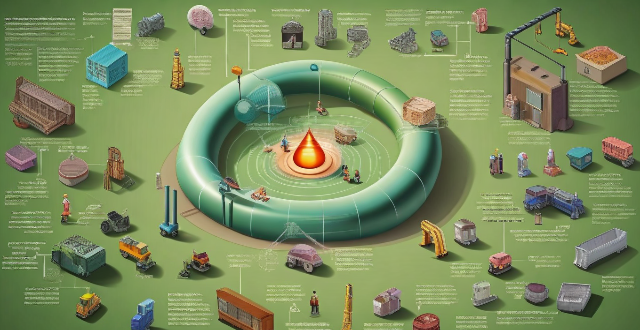Athletes prepare for high-pressure games through physical training, nutrition, rest, mental preparation, tactical planning, and team bonding. They follow strict regimens to ensure peak physical condition, consult nutritionists for meal plans, prioritize sleep and recovery techniques, use visualization and mindfulness practices, develop game plans and simulation drills, build team chemistry, clarify roles, and set collective goals.

How Do Athletes Prepare for High-Pressure Games?
High-pressure games can be nerve-wracking for athletes, but with the right preparation, they can perform at their best. Here are some ways athletes prepare for such situations:
Physical Preparation
*Training Regimen*
Athletes follow a strict training regimen to ensure that their bodies are in peak physical condition. This includes strength and endurance training, as well as sport-specific skills practice.
*Nutrition*
Proper nutrition is crucial for maintaining energy levels and recovering from workouts. Athletes typically consult with sports nutritionists to develop meal plans that fuel their bodies effectively.
*Rest and Recovery*
Adequate rest is essential for muscle recovery and mental sharpness. Athletes prioritize sleep and may use techniques like ice baths or massage therapy to aid recovery.
Mental Preparation
*Visualization*
Athletes often use visualization techniques to mentally rehearse their performance, imagining themselves succeeding in high-pressure situations.
*Mindfulness and Meditation*
Practices like mindfulness and meditation help athletes stay calm and focused, reducing anxiety and improving concentration.
*Psychological Coaching*
Some athletes work with sports psychologists to develop strategies for managing stress and maintaining a positive mindset.
Tactical Preparation
*Game Plan*
Athletes and coaches develop a detailed game plan that accounts for various scenarios and opponent strategies.
*Video Analysis*
Watching videos of previous games or matches against upcoming opponents allows athletes to identify patterns and prepare accordingly.
*Simulation Drills*
Practice sessions may include simulation drills that mimic the pressure and intensity of actual competition.
Team Preparation
*Building Team Chemistry*
Strong relationships among teammates can enhance communication and cooperation during high-pressure games.
*Role Clarity*
Each player understands their role within the team, which helps to minimize confusion and maximize efficiency.
*Collective Goals*
Having shared objectives creates a sense of unity and purpose, encouraging players to support each other under pressure.
Conclusion
Preparing for high-pressure games involves a combination of physical, mental, tactical, and team-oriented strategies. By addressing each aspect comprehensively, athletes can increase their chances of success when it matters most.